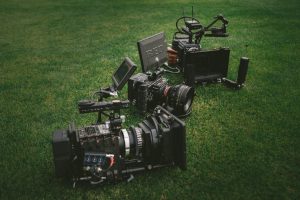Two court settlements have come down this week that shine light on the increasingly-common practice of videotaping police officers. In Las Vegas, Mitchell Crooks was beaten up by a police officer while videotaping a burglary investigation across the street from his house. In Boston, attorney Simon Glik was arrested and prosecuted under wiretapping laws for using his cell phone to record an arrest of another man. All charges were dropped in both cases, but both men also sued for violations to their civil rights. In both cases, they reached a settlement before going to court for a judgement, with Crooks receiving $100,000 and Glik receiving $170,000. Nearly 6 months ago, Glik’s case even went to the 1st Circuit Appeals Court, where they upheld the rights of citizens to record public police action in a landmark, often-cited decision.
The constitutional clause at issue here is, of course, the First Amendment, which protects in part the freedom of the press. Videotaping a police officer, as upheld by the First Circuit, falls within this freedom. In other words, police officers, along with every other human being in America, can be held accountable for their behavior in public, and every human being in America also has the right to record this behavior, in public, in the interest of freedom. This may seem obvious to you and me, that policemen can’t just do whatever they want all the time and get away with it, but police officers are sometimes swollen with great power sans great responsibility and thus need to be reminded by the courts from time to time.
More people own videotaping equipment than ever before. Nearly everyone who carries a cell phone has the ability to whip it out and start recording. Along with pocket-sized digital cameras that upload directly to Youtube, we live in a world where even the smallest injustice can be noticed by millions in the course of an hour. It’s sad that policemen don’t always understand, or worse, respect the laws and freedoms that they’re meant to uphold. Though I’d prefer these kinds of cases to go to court, requiring a judge to decide and set precedent, these settlements do put police conduct in the spotlight, which in turn reminds us of our rights. And what can an average citizen do besides educate themselves and stand unwavering in the assertion of their rights? So start recording your police officers — you may be beaten to a pulp, but it will advance the right of people all over the country.
Read more:
- The video recorded by Mitchell Crooks, which went viral
- Simon Glik tells his story, including his original video
- Illinois’ recent troubles with privacy and police conduct

Pingback: Two Settlements for Families of Mentally Ill Killed by Police Errors | Lawyer.com